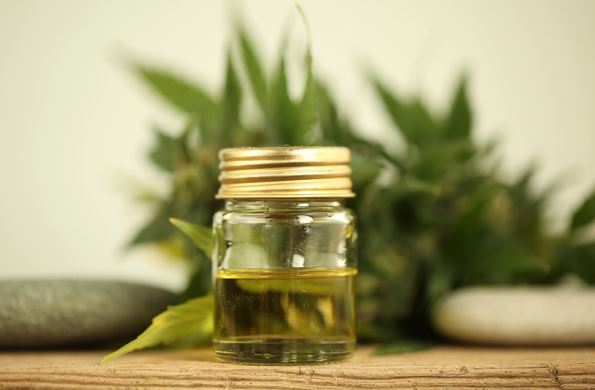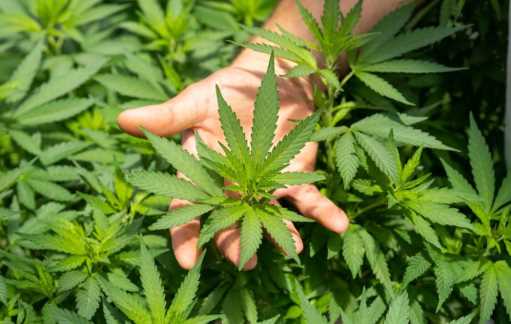Cannabis appeared in the Western Hemisphere during the era when the Americans colonized this region. A variety of products are made from its fibers, including papers, clothing, and rope. Herbal medicines are also widely used in different parts of the world. The United States now has the most commonly used drug in the world, cannabis.
Since the dawn of the 20th century, marijuana use in the United States has more than doubled. A common symptom of cannabis use has been anxiety, especially when combined with high doses and acute use. Generally, anxiety is the feeling of unease, such as fear or worry. Such feelings are common to all of us throughout our lives. Anxiety about exams or living standards can cause stress, like students worrying about tests.
It is increasingly important for health care professionals to learn the basics of cannabis so they can confidently answer patient questions. Cannabis is increasingly used in the treatment of conditions such as anxiety disorders. If this is the case, patients may seek recommendations from friends, the internet, and budtenders. Get help at Homegrown Cannabis Co. Also, an effective treatment option is cannabis when used as part of a customized approach.
Feelings of anxiety
Fear causes anxiety both emotionally and physiologically. There is a continuum of feelings from unease to panic, as well as a continuum of physical reactions, from an increased heart rate to running. When anxiety interferes with an individual’s ability to live a normal life because it is disproportionate in duration, frequency, or intensity to its cause, it is considered pathological. A generalized anxiety disorder (GAD) is characterized by a high level of anxiety. Anxiety is defined as “excessive worry and an uneasiness that lasts six months or longer,” but anyone experiencing anxiety knows that it is not that simple. People experience anxiety symptoms in various ways, and it can be both episodic and chronic. The symptoms of anxiety can interfere with day-to-day life and interfere with the ability to perform daily tasks. Anxiety can also interfere with social interactions by limiting the ability to get out of bed in the morning and cause migraines.
Anxiety Symptoms
In addition to generalized anxiety disorders, there are panic disorders, social anxiety disorders (SAD), specific phobias, obsessive-compulsive disorders, posttraumatic stress disorders (PTSD), major depressive disorders, and persistent depressive disorders. Although the mental and physical symptoms of any given diagnosis are similar, they can vary significantly in intensity and duration as well as affect all bodily systems.
Adaptogenic effects of cannabis on anxiety
Medical marijuana is most commonly used to relax people. The use of cannabis in medical contexts is also linked to anxiety, with panic attacks and paranoia occasionally being reported following high doses of THC. Since the ECS is involved in regulating a patient’s reaction to stimuli, it’s not surprising that cannabis may be both anxiogenic and anxiolytic. In general, lower doses induce anxiolytic-like effects, while higher doses produce the opposite effect.
Many of the studies on cannabinoids and anxiety were conducted on single-molecule, synthetic cannabinoids such as nabilone (a synthetic THC analog as well as a CB1 agonist), which provides effective anxiety relief. According to the evidence, the CB1 receptor is involved in anxiety pathophysiology, and its activation is inversely correlated with anxiety symptoms.
In preclinical studies related to GAD, CBD was found to have anxiolytic and neuroprotective properties. An animal model of generalized anxiety disorder tested high doses of CBD (100 mg/kg), while lower doses (10 mg/kg) appeared to reduce anxiety symptoms. Observational research showed that cannabis’s effects were biphasic in nature. The mechanisms of action are likely to be complicated, so more research must be done to elucidate them.
Cannabinoids are used in the treatment of anxiety disorders
Despite controversy, scientific research suggests cannabis may bring relief to many patients with anxiety disorders. Researchers, healthcare professionals, and patients alike have become interested in how cannabis can be used medicinally to treat anxiety disorders. Cannabis has been legalized for medical purposes in more states, and other states are reviewing their medical use policies, so anxiety is often listed as a condition to be treated.
Researchers have explored the role of the endocannabinoid system (ECS) in maintaining the balance of our bodies. Clinical cannabis is used both as a first-line and adjunct therapy to successfully manage anxiety disorders. Cannabis dosage and timing are not prescribed, but clinicians are using it as a first-line and adjunct therapy.
Final thoughts
Using cannabis has been shown to reduce anxiety in some people, which seems contradictory. As for marijuana’s adverse effects, acute anxiety is the most prevalent. To clarify how cannabis may cause severe anxiety and long-lasting anxiety disorders, it is important to reconcile these conflicting statements and to do further research. Through such research and studies, prevention strategies could easily be developed. Longitudinal studies may help understand social, neurobiological, and other conflicting factors. Please visit https://homegrowncannabisco.com/autoflower-seeds-usa if you are interested in purchasing some good quality Cannabis products.



